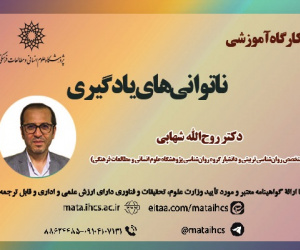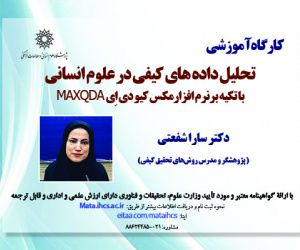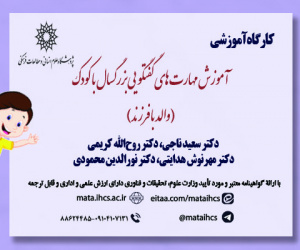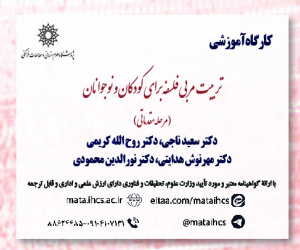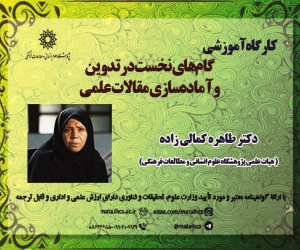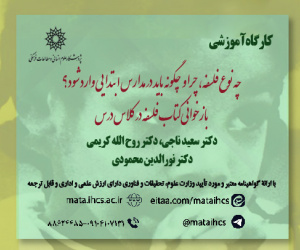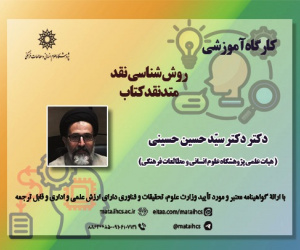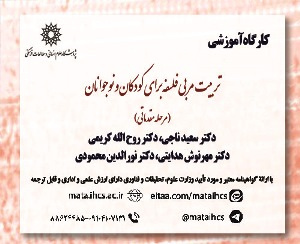بررسی ارتباط مدیریت اسلامی بر مدارای اجتماعی با تأکید بر نقش میانجی سرمایه روان شناختی (مقاله پژوهشی حوزه)
درجه علمی: علمی-پژوهشی (حوزوی)
آرشیو
چکیده
مقدمه و اهداف: مدیریت اسلامی رویکردی خاص برای مدیریت سازمان هاست که براساس اصول و ارزش های اسلامی استوار است. رابطه مدیریت اسلامی و سرمایه روان شناختی حوزه ای قابل توجه در زمینه رفتار و مدیریت سازمانی است. در چارچوب مدیریت اسلامی، مدارای اجتماعی را می توان به عنوان یک عنصر کلیدی برای ارتقای مدیریت اخلاقی در نظر گرفت که به تفاوت ها احترام می گذارد. مدارا و تعامل بین کارکنان یک سازمان به ویژه دانشگاه از لازمه های رشد و شکوفایی آن است. مدارای اجتماعی در محیط دانشگاه یک جنبه حیاتی برای ایجاد محیطی هماهنگ برای کارکنان است که شامل توانایی پذیرش و احترام به تفاوت در ایده ها، باورها و سبک زندگی در میان افراد با پیشینه های مختلف است. اصول مدیریت اسلامی بر اهمیت ارزش هایی مانند شفقت، همدلی و انصاف در محیط کار تأکید دارد. این ارزش ها ارتباط نزدیکی با مفهوم سرمایه روان شناختی دارند که به حالات روان شناختی مثبتی اشاره دارد که به توانایی فرد برای عملکرد مؤثر در محیط کار کمک می کند. هدف از این پژوهش به کارگیری اصول مدیریت اسلامی و تأثیر آن بر مدارای اجتماعی با نقش واسطه ای سرمایه روان شناختی در بین کارکنان دانشگاه محقق اردبیلی است. روش: در این تحقیق کارکنان اداری و آموزشی دانشگاه محقق اردبیلی به تعداد 400 نفر بررسی شدند که با استفاده از جدول مورگان نمونه ای به اندازه 118 نفر انتخاب شدند و برای تعیین ارتباط علّی بین متغیرها، تحلیل های آماری با استفاده از روش معادلات ساختاری و نرم افزارهای SPSS23 و SMART– PLS انجام شده است. در این زمینه سؤالات پرسش نامه، از چارچوب کلی سؤالات پرسش نامه عسگری و همکاران (1393) شامل معیار ارزشی، معیار تخصصی، معیار مکتبی و پرسش نامه مدارای اجتماعی پیترکینگ (1976) شامل ابعاد مدارای سیاسی، عقیدتی، رفتاری و هویتی و پرسش نامه سرمایه روان شناختی لوتانز (2007) شامل ابعاد خودکارآمدی، امیدواری، تاب آوری و خوش بینی جمع آوری شدند که در سابقه تحقیقات قبلی روایی و پایایی این پرسش نامه ها تأیید شده بودند. نتایج: نتایج پژوهش نشان می دهد مدیریت اسلامی بر مدارای اجتماعی و سرمایه روان شناختی به ترتیب 775/0 = β و 826/0 = β تأثیر مستقیم و مثبتی دارد. همچنین، رابطه معناداری بین مدیریت اسلامی و مدارای اجتماعی وجود دارد و سرمایه روان شناختی واسطه این رابطه است. بحث و نتیجه گیری: مطابق نتایج این پژوهش مدیریت اسلامی بر مدارای اجتماعی تأثیر دارد. تلاقی مدارای اجتماعی و مدیریت اسلامی یک تعامل پیچیده بین ابعاد فرهنگی، روان شناختی مذهبی و اخلاقی را در شکل دادن به هنجارهای اجتماعی، شیوه های تجاری و رفتارهای فردی آشکار می کند. نتایج این پژوهش نشان می دهد مدیریت اسلامی سرمایه روان شناختی را در بین کارکنان افزایش می دهد. اصول مدیریت اسلامی می تواند سرمایه روان شناختی را با پرورش فرهنگ اعتماد تحت تأثیر قرار دهد و باعث افزایش احترام و ارتباطات باز در درون سازمان شود. همچنین، نتایج این پژوهش نشان می دهد کارکنان با سطوح بالاتر سرمایه روان شناختی تمایل به مدارای اجتماعی بیشتری دارند. وقتی کارکنان دارای حس قوی خودکارآمدی، امید، خوش بینی و انعطاف پذیری هستند، به احتمال زیاد نسبت به دیدگاه ها و فرهنگ های مختلف باز هستند و آنها را می پذیرند. به طورکلی، یافته ها نشان می دهند رابطه معناداری بین مدیریت اسلامی و مدارای اجتماعی وجود دارد و سرمایه روان شناختی واسطه این رابطه است. سرمایه روان شناختی را می توان در مدیریت اسلامی برای بهبود عملکرد و رفاه کارکنان، با تشویق اعمالی مانند مراقبه، دعا و تأمل معنوی و همچنین مدیریت منابع انسانی، معنویت در کار، مدیریت احساسات و رهبری استفاده کرد. پیشنهاد می شود در انتخاب مدیران دانشگاه معیارهای تخصصی مانند دانش، مهارت و شایستگی، معیارهای ارزشی مانند مدارا، عدالت و انصاف و معیارهای مکتبی، که ریشه در مکتب اسلام دارد، مانند خیرخواهی، تقوای فردی و سیاسی مدنظر قرار گیرد. تقدیر و تشکر: بدین وسیله از کارکنان اداری و آموزشی دانشگاه محقق اردبیلی که در طول انجام پژوهش ما را یاری رساندند و در تکمیل پرسش نامه همکاری نمودند، تشکر و قدردانی می شود. تعارض منافع: بین نویسندگان هیچ گونه تعارضی در منافع وجود ندارد.Examining the Relationship between Islamic Management and Social Tolerance with Emphasis on the Mediating Role of Psychological Capital
Introduction and Objectives: Islamic management is a specific approach to management of organizations based on Islamic principles and values. The relationship between Islamic management and psychological capital is a significant area of study in the field of organizational behavior and management. Within the framework of Islamic management, social tolerance can be considered a key element for promoting ethical management that respects differences. Tolerance and interaction between employees of an organization, especially a university, are essential for its growth and prosperity. Social tolerance in the university environment is a vital aspect of creating a harmonious environment for employees that includes the ability to accept and respect differences in ideas, beliefs, and lifestyles among people with different backgrounds. Islamic management principles emphasize the importance of values such as compassion, empathy, and fairness in the workplace. These values are closely related to the concept of psychological capital, which refers to positive psychological states that contribute to an individual's ability to perform effectively in the workplace. The purpose of this study is to apply Islamic management principles and their impact on social tolerance with the mediating role of psychological capital among employees of the University of Mohaghegh Ardabili (also known as Mohaghegh Ardabili University).
Method: In this study, 400 administrative and educational staff of Mohaghegh Ardabili University were studied. A sample of 118 people was selected using the Morgan table, and to determine the causal relationship between variables, statistical analyses were performed using the structural equation method and (SPSS-23) and (Smart-PLS) software. In this context, the questionnaire's questions were collected from the general framework of the Asgari et al. (2014) questionnaire's questions including value criteria, professional criteria, school criteria, and Peter King's Social Tolerance Questionnaire (1976) including dimensions of political, ideological, behavioral, and identity tolerance, and Luthans et al., (2007) Psychological Capital Questionnaire including dimensions of self-efficacy, hope, resilience, and optimism, whose validity and reliability had been confirmed in previous research.
Results: The results of the study showed that Islamic management has a direct and positive effect on social tolerance and psychological capital, β = 0.775 and β = 0.826, respectively. There is also a significant relationship between Islamic management and social tolerance, and psychological capital mediates this relationship.
Discussion and Conclusions: According to the results of this study, Islamic management has an impact on social tolerance. The intersection of social tolerance and Islamic management reveals a complex interaction between cultural, psychological, religious, and ethical dimensions in shaping social norms, business practices, and individual behaviors. The results of this study showed that Islamic management increases psychological capital among employees. Islamic management principles can affect psychological capital by fostering a culture of trust and increasing respect and open communication within the organization. The results of this study also showed that employees with higher levels of psychological capital tend to be more socially tolerant. When employees have a strong sense of self-efficacy, hope, optimism, and resilience, they are more likely to be open to and accepting of different perspectives and cultures. Overall, the findings indicated that there is a significant relationship between Islamic management and social tolerance, and psychological capital mediates this relationship. Psychological capital can be used in Islamic management to improve employee performance and well-being by encouraging practices such as meditation, prayer, and spiritual reflection, as well as human resource management, spirituality at work, emotion management, and leadership. It is suggested that in selecting university administrators, specialized criteria such as knowledge, skill, and competence, value criteria such as tolerance, justice, and fairness, and doctrinal criteria rooted in the Islamic school of thought such as benevolence, personal, and political piety should be taken into consideration.
Acknowledgement: We would like to express our gratitude to the administrative and educational staff of the University of Mohaghegh Ardabili who assisted us during the research and completed the questionnaire.
Conflict of Interest: There is no conflict of interest between the authors.

